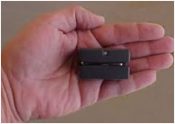
 Get in touch with Omega now or call 636-557-7777. We will help you with your data security needs.
Get in touch with Omega now or call 636-557-7777. We will help you with your data security needs.
Why is skimming at POS devices so appealing to hackers?
POS machines are easy targets and the returns are good as well. The hacker can steal the card information that these skimmers collect, create new cards, and use them to withdraw cash from ATM machines. Unattended terminals and self-checkout terminals are easy game for an offender. The known practice is criminals make swift moves within one geographic location, then shift to a different area.
The actual placements of the skimming devices most often occur during slow business times. Usually a couple people or more enter a store, and while one blocks the POS machine from clear view, the other places the skimmer.
Here are some suggestions made by VISA to prevent skimming device installations; and tips on detection and response.
For prevention:
For detection:
For response:
Having worked with several compromised retailers, Omega can help with your stores’ data security and PCI requirements, including incident response plans, and policies and procedures for PCI DSS 3.2. Get in touch with us now or call 636-557-7777.